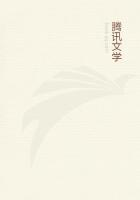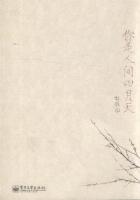And having been brought up at Oxford in the bad old times, when we were stuffed with Greek and Aristotle, and thought nothing of preparing ourselves by the study of modern languages,--as after Mr. Lowe's great speech at Edinburgh we shall do,--to fight the battle of life with the waiters in foreign hotels, my head is still full of a lumber of phrases we learnt at Oxford from Aristotle, about virtue being in a mean, and about excess and defect and so on. Once when I had had the advantage of listening to the Reform debates in the House of Commons, having heard a number of interesting speakers, and among them a well-known lord and a well-known baronet, Iremember it struck me, applying Aristotle's machinery of the mean to my ideas about our aristocracy, that the lord was exactly the perfection, or happy mean, or virtue, of aristocracy, and the baronet the excess. And I fancied that by observing these two we might see both the inadequacy of aristocracy to supply the principle of authority needful for our present wants, and the danger of its trying to supply it when it was not really competent for the business. On the one hand, in the brilliant lord, showing plenty of high spirit, but remarkable, far above and beyond his gift of high spirit, for the fine tempering of his high spirit, for ease, serenity, politeness,--the great virtues, as Mr. Carlyle says, of aristocracy,--in this beautiful and virtuous mean, there seemed evidently some insufficiency of light; while, on the other hand, the worthy baronet, in whom the high spirit of aristocracy, its impenetrability, defiant courage, and pride of resistance, were developed even in excess, was manifestly capable, if he had his way given him, of causing us great danger, and, indeed, of throwing the whole commonwealth into confusion. Then I reverted to that old fundamental notion of mine about the grand merit of our race being really our honesty.
And the very helplessness of our aristocratic or governing class in dealing with our perturbed social condition, their jealousy of entrusting too much power to the State as it now actually exists--that is to themselves--gave me a sort of pride and satisfaction; because I saw they were, as a whole, too honest to try and manage a business for which they did not feel themselves capable.
20 Surely, now, it is no inconsiderable boon which culture confers upon us, if in embarrassed times like the present it enables us to look at the ins and the outs of things in this way, without hatred and without partiality, and with a disposition to see the good in everybody all round. And I try to follow just the same course with our middle class as with our aristocracy. Mr. Lowe talks to us of this strong middle part of the nation, of the unrivalled deeds of our Liberal middle-class Parliament, of the noble, the heroic work it has performed in the last thirty years;and I begin to ask myself if we shall not, then, find in our middle class the principle of authority we want, and if we had not better take administration as well as legislation away from the weak extreme which now administers for us, and commit both to the strong middle part. I observe, too, that the heroes of middle-class liberalism, such as we have hitherto known it, speak with a kind of prophetic anticipation of the great destiny which awaits them, and as if the future was clearly theirs. The advanced party, the progressive party, the party in alliance with the future, are the names they like to give themselves. 'The principles which will obtain recognition in the future,' says Mr. Miall, a personage of deserved eminence among the political Dissenters, as they are called, who have been the backbone of middle-class liberalism--' the principles which will obtain recognition in the future are the principles for which I have long and zealously laboured.
I qualified myself for joining in the work of harvest by doing to the best of my ability the duties of seedtime.' These duties, if one is to gather them from the works of the great Liberal party in the last thirty years, are, as I have elsewhere summed them up, the advocacy of free trade, of Parliamentary reform, of abolition of church-rates, of voluntaryism in religion and education, of non-interference of the State between employers and employed, and of marriage with one's deceased wife's sister.
21 Now I know, when I object that all this is machinery, the great Liberal middle class has by this time grown cunning enough to answer that it always meant more by these things than meets the eye; that it has had that within which passes show, and that we are soon going to see, in a Free Church and all manner of good things, what it was. But Ihave learned from Bishop Wilson (if Mr. Frederic Harrison will forgive my again quoting that poor old hierophant of a decayed superstition): 'If we would really know our heart let us impartially view our actions;' and I cannot help thinking that if our Liberals had had so much sweetness and light in their inner minds as they allege, more of it must have come out in their sayings and doings.
22 An American friend of the English Liberals says, indeed, that their Dissidence of Dissent has been a mere instrument of the political Dissenters for making reason and the will of God prevail (and no doubt he would say the same of marriage with one's deceased wife's sister); and that the abolition of a State Church is merely the Dissenter's means to this end, just as culture is mine. Another American defender of theirs says just the same of their industrialism and free trade; indeed, this gentleman, taking the bull by the horns, proposes that we should for the future call industrialism culture, and the industrialists the men of culture, and then of course there can be no longer any misapprehension about their true character; and besides the pleasure of being wealthy and comfortable, they will have authentic recognition as vessels of sweetness and light.















